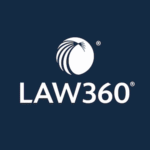In a significant move to enhance its position in the competitive obesity drug market, Pfizer has announced plans to acquire biotech firm Metsera for over $7 billion. This acquisition marks a strategic effort by Pfizer to re-enter the GLP-1 (glucagon-like peptide-1) market, a space that has garnered considerable attention for the potential of its weight-loss therapies.
The market reacted positively to the announcement, pushing Pfizer’s shares higher in morning trading—a notable response given the typical skepticism that accompanies such large-scale acquisitions. Tim Seymour, a seasoned investor and head of Seymour Asset Management, emphasized the strategic importance of the acquisition during a segment for CNBC Pro. He noted that “getting into GLP land… it’s kind of been the Holy Grail for everybody,” highlighting the significant potential in this segment for pharmaceutical growth.
Seymour elaborated that Pfizer, which had previously abandoned its own development plans in the GLP-1 area about five months ago, may have found renewed opportunities by acquiring Metsera, which has developed oral and injectable weight-loss treatments, including a once-a-month option. This structure allows Pfizer to spread out its financial commitment, as the full price will only be paid when certain clinical milestones are achieved, a factor that likely contributed to the encouraging market reaction.
Over the last four years, Pfizer has aggressively diversified its portfolio, particularly in oncology and other high-potential sectors, channeling approximately $30 billion in funds gained from its COVID-19 related successes into future investments. Seymour has set ambitious targets, projecting an additional $30 billion in revenue for Pfizer by 2030, marking a 50% increase based on its revenue from the previous year.
As of Monday, Pfizer’s shares traded above $24, recovering from a drop of approximately 9% this year. Seymour, who originally acquired shares in the high $30s, noted the attractiveness of Pfizer’s stock, complimented by a robust 7% dividend yield that provides incentives for investors to remain patient as the company works towards a market comeback.
In the same video discussion, Seymour also shared his current investment insights, including his views on promising AI stocks, the implications of a weakening dollar for the stock market, and an update on banking stocks he had previously favored ahead of a potential Federal Reserve rate cut. Additionally, he ventured into a light-hearted commentary on the legitimacy of Goose as a jam band, showcasing the blend of financial analysis with personal commentary.







